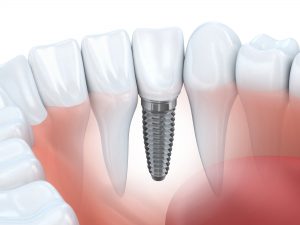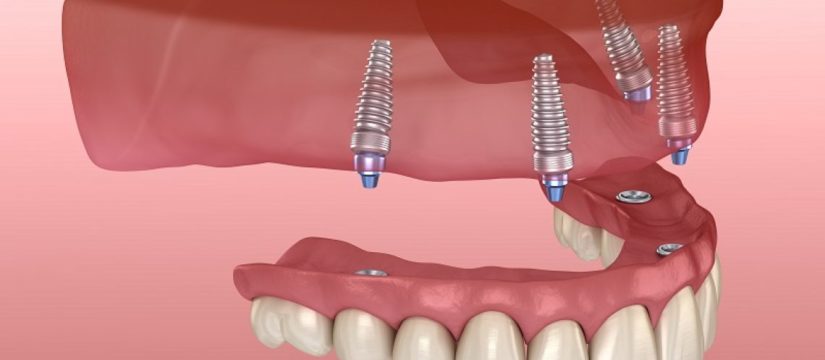
Many people often ignore missing teeth, therefore it is important to know how dental implants work. To some, especially sports personalities, take it as a stamp of approval or badge of honor. However, missing teeth comes with lots of health risks. 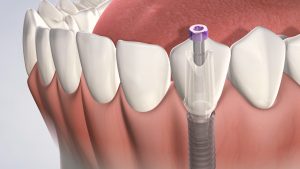
First off, it can cause gum disease which is also linked to stroke, heart disease, diabetes, cognitive diseases, and more. While gum disease is treatable, it’s chronic. Besides gum disease, failure to replace a lost tooth can lead to losing more teeth. This is because the remaining teeth have to work harder to chew food.
Due to the increased workload, the surrounding teeth shift out of place and even start cracking and becoming damaged. The good news is there are dental procedures that can restore your missing tooth. One of those procedures is dental implants, but how do they work?
How Do Dental Implants Work
Dental implants are medical devices that help to restore a person’s ability to chew and even their appearance after losing a tooth. Surgically implanted, they also provide support for artificial teeth such as dentures, and crowns.
A dental implant consists of a dental implant body and abutment which may also include an abutment fixation screw. The implant body is usually surgically inserted in the jawbone in place of the missing tooth. Knowing how dental implants work will help you decide if they are right for you and your missing teeth.
Before inserting the dental implant, the dentist will carefully examine your mouth. He may even take X-rays or a CBCT, a 3 dimensional image, of your teeth and jaw. This enables the dentist or specialist to know if dental implants are right for you.
Next, we have the surgical procedure. In this step, the dentist will put a dental implant into your jawbone where your old root used to be. He will then stitch the gum tissue back into place. Once the tissue heals, the dental implant will osseointegrate or bond with the jawbone and gum. Please note, healing may take several weeks or a few months.
The dental implant serves as the root of the missing tooth. Since the titanium in the implants bonds with the bone, the implant will not loosen. Also, it will not cause bone damage or slip unlike dentures and fixed bridgework. The dental implant also does not decay like your teeth which saves you money and will last longer over time.
After the tissue heals, the dentist will attach an abutment to the dental implant. As aforementioned, an abutment is a post that connects the replacement tooth to the implant. The dentist will make an artificial replacement and then attach it to the abutment. This process will require several appointments to fit the replacement tooth into the abutment.
Now you are educated with how teeth implants work. Want to know how full mouth dental implants work?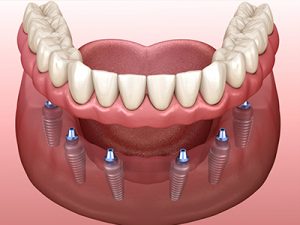
Read on to learn how full dental implants work…
How Do Full Dental Implants Work
If replacing several teeth or all the teeth, the dentist will use a fixed bridge to anchor to the dental implants. A bridge is a restoration device that replaces more missing teeth. In fact, it spans the areas with missing teeth. To hold the bridge firmly in place, the dentist will use dental implants on each side of the missing tooth or teeth.
How do full dental implants work? If replacing all the teeth then only 4 dental implants are necessary, much like a chair with 4 legs. We call this the All on 4 dental implant method, similar to how clear choice, a national chain, restores their patients. 
Now, you can chew food and even smile naturally. No longer do you need to chew food with one side and overload your teeth. This is because dental implants look and function like your natural teeth. In fact, no one can tell that they are not your natural teeth.
Who Is Eligible for Dental Implants?
Dental implants are right for you if:
-
- Your jawbone’s reached full growth
-
- You have healthy oral tissues
-
- You have one or more missing teeth
-
- You have adequate bone to secure the dental implants
-
- You are unable or unwilling to wear dentures
-
- You want to smile naturally
-
- You want to improve your speech
Also, if you are willing to commit several weeks or months to the process, then dental implants are right for you.
How to Care For Your Dental Implants?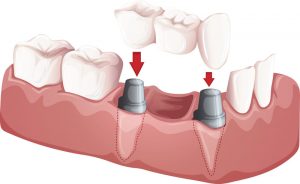
Like your natural teeth, you need to keep your dental implants clean. That means flossing and brushing your teeth two times a day, in addition to keeping up with your 6-month dental cleaning visits. If you’re considering dental implants in Rockville, it’s essential to understand the importance of maintaining proper oral hygiene to ensure their longevity. After the procedure, the dentist will show you how to clean your dental implants.
Your dentist will also schedule several checkups during the following year to ensure the dental implants are working. Remember, dental implants cost more than other kinds of replacement teeth. While it’s a one-time cost, not taking proper care of dental implants can become costly.
Avoid chewing hard items such as hard candy as they can break your crowns or even your natural teeth. Also, it is best to avoid tooth-staining tobacco products. Always consult an experienced dentist.


